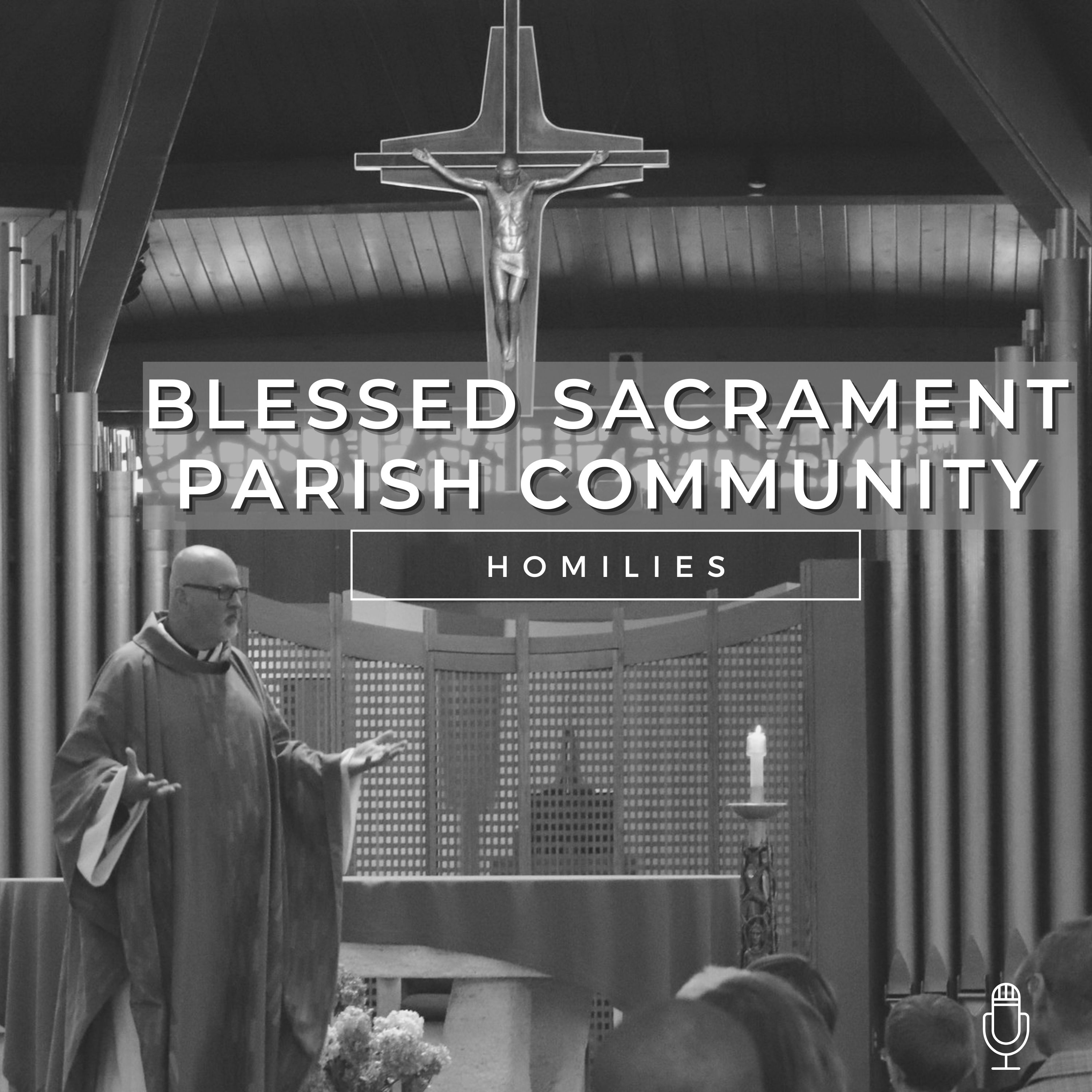Episode Transcript
[00:00:12] Speaker A: Welcome to the Blessed Sacrament Homilies podcast where our mission is to help everyone recognize and experience the presence of God. We hope you are nourished and encouraged by the word. Thank you for joining us.
[00:00:26] Speaker B: The Lord be with you.
Reading from the holy gospel according to John glory to you, O Lord. Jesus went across the sea of Galilee. A large crowd followed him because they saw the signs he was performing on the sick.
Jesus went up on the mountain and there he sat down with his disciples.
The jewish feast of Passover was near.
When jesus raised his eyes and saw that a large crowd was coming to him. He said to Philip, where can we buy enough food for them to eat?
He said this to test him because he himself knew what he was going to do.
Philip answered him, 200 days wages worth of food would not be enough for each of them to have but a little.
One of his disciples, Andrew, the brother of Simon Peter, said to him, there is a boy here who has five barley loaves and two fish, but what good are these for so many?
Jesus said, have the people recline now. There was a great deal of grass in that place, so the men reclined about 5000 in number.
Then Jesus took the loaves, gave thanks and distributed them to all those who were reclining, and also as much of the fish as they wanted.
When they had their fill, he said to his disciples, gather the fragments left over so that nothing will be wasted.
So they collected them and filled twelve wicker baskets with fragments from the five barley loaves that had been more than they could eat.
When the people saw the sign he had done, they said, this is truly the prophet, the one who is to come into the world.
Since jesus knew that they were going to come and carry him off to make him king, he withdrew again to the mountain alone. The gospel of the Lord praise to you, Lord Jesus Christ. All of the gospel miracle stories that we hear are always meant to be much more than just the miracle. They're meant to teach us on a deeper level how God relates to us and how we relate to God.
This one, however, I think is the most profound, and I'll explain to you why I have absolutely no problem believing that Jesus Christ as the Son of God could do anything, create anything, make anything happen.
After all, we believe that God created the universe and all that dwells in it.
So figuring he could make bread and fish, things like that, you have no problem. That's easy to believe.
But the miracle here is much deeper and much more profound because he didn't just spontaneously create food for the people.
Instead, the teaching and the preaching and the example that he gave did what was truly miraculous. It changed human hearts.
Most scripture scholars will quickly point out that in this time and place in the world, no one would ever travel anywhere without taking exactly what they would need to survive.
Remember, there were no seven elevens. There were no meyers. There were no Jack's fruit market. You couldn't just go somewhere and buy something.
You couldn't even go and get a happy meal. So they would have brought everything with them, including something to keep them warm, including water to drink, including food to nourish them.
So the miracle happened because Jesus was able to speak to their hearts and get those hearts to change, because the only people that wouldn't have had enough to eat would have been the ones that were stuck in poverty and probably spent most of their days hungry and struggling.
Yet his words caused people that normally have a tendency to be selfish, to be generous, to be merciful, to be compassionate.
And they reached in to their bags and they pulled out what they had with them, and they began to share it with those around them.
And before you knew it, there was enough to fill many baskets full of leftovers.
That's the real miracle of the story, that Jesus was able to take human hearts and make them generous and loving, and that's the same thing he can do for each one of us. He can take our stony hearts and make them, as the scriptures say, natural hearts. Make them generous, like our God who loves us. Now, the second truth of this gospel, the one that goes to the deepest level, is that he's also reminding us that it's his presence, his life, his eucharist, that is going to be the meal that never runs out of that he is going to nourish the world for all eternity, that his presence and his love are going to be poured out and offered for us.


